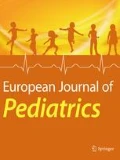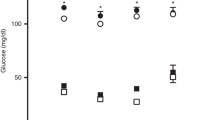Abstract
There has been much controversy and confusion regarding potential damage caused to the neonatal brain by low blood glucose levels. Previous studies of outcome after neonatal hypoglycaemia are flawed by many factors including retrospective data collection and inability to control for co-existing clinical complications. There is no doubt that hypoglycaemic brain damage does occur but the severity and duration of low blood glucose levels required to cause lasting harm varies between subjects and is related to the ability of each baby to mount a protective response such as the production of ketone bodies which are alternative cerebral fuels. Evidence from studies of humans and other animals suggests that cortical damage and long-term sequelae occur after prolonged hypoglycaemia sufficiently severe to cause neurological signs.
Conclusion Prolonged hypoglycaemia should be avoided by close clinical observation of vulnerable infants whilst avoiding excessively invasive management in populations of neonates which may jeopardise the successful establishment of breast feeding.
Similar content being viewed by others
Author information
Authors and Affiliations
Rights and permissions
About this article
Cite this article
Hawdon, J. Hypoglycaemia and the neonatal brain. Eur J Pediatr 158 (Suppl 1), S9–S12 (1999). https://doi.org/10.1007/PL00014319
Issue Date:
DOI: https://doi.org/10.1007/PL00014319




